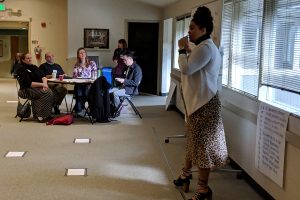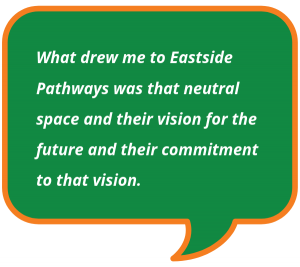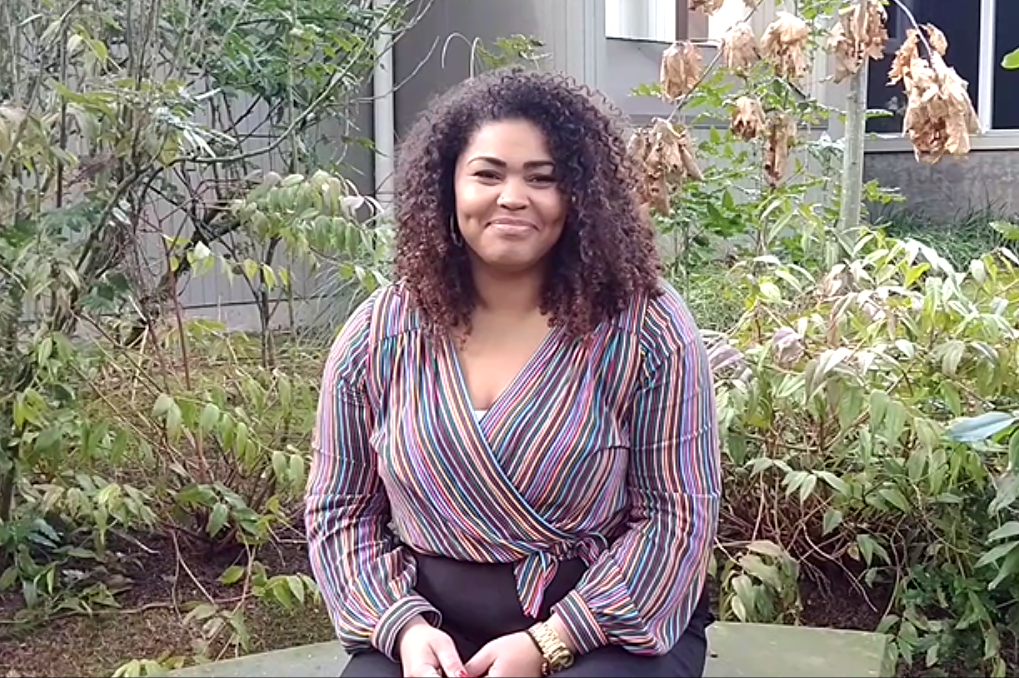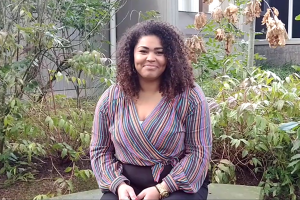Kalika Curry is not new to Eastside Pathways. She joined the organization as its first Community Impact Manager in January this year, but has been associated with its work for more than three years in her capacity as a facilitator for the Community Engagement for Cultural Integration collaborative. Kalika is passionate about youth development and racial equity. “Being a designer and thought leader gives me great joy, knowing that ultimately, we are changing the lives of youth.”
In this interview, Kalika talks about her role and some of her expectations.
Could you tell us about your role and what excites you about it?
My role is to support all levels of the system – from 1:1 engagement with contributors, to facilitating small collaborative workgroups or larger convenings for the partnership that involve 50+ participants. The focus is on analyzing, discovering, and designing conflict resolutions to ensure the flow of work continues at and across all zones.
I love puzzling, particularly regarding structures and people. As the community impact manager, I get to “nerd out” on systems analysis and dive deep into human behavior.
Collective impact relies heavily on the alignment of the heads and hearts of its contributors, resulting in systems change. Being a designer and a thought leader in this way gives me great joy; knowing that ultimately, we are changing the lives of youth.
What have been some of your initial priorities?
Relationship, restoration, and re-imagining. Building relationships with our contributors, community, and agencies is crucial in grounding myself in the role. As I am invited into spaces, I have the opportunity to work with our dedicated community to address the challenges that create the status quo and support them in re-imagining our future. I do believe by designing meetings with results at the center and creating a safe space to address conflicts, folks become more engaged and see the results.
What are the qualities/skills required of an effective facilitator?
 Being a neutral facilitator is key! When dealing with values conflicts, having a leader with an agenda rarely plays out well for the whole group. By being neutral, participants have a safer space to contribute and get down to the hard stuff.
Being a neutral facilitator is key! When dealing with values conflicts, having a leader with an agenda rarely plays out well for the whole group. By being neutral, participants have a safer space to contribute and get down to the hard stuff.
I think we are all exhausted of meetings where “I am not really sure why I was there” or “what was the point of that?” are the results. Being able to support the group in lifting up conflicts, applying pressure to complete tasks, and chart a course to their outcomes is foundational.
I’ve been fortunate to have been trained in Adaptive Leadership as well as Results-Based Facilitation. I think those two schools of thought provide some unique skills for doing collective impact work. It gives you the opportunity to address people’s roles within the community and create a neutral space for them to work together.
Could you expand more on building relationships?
Tools such as gracious space or icebreakers are some of the great ways to engage the community. But, getting deeper than that, it’s about personal reflections on who you are and what is your story, so you can be aware of yourself when engaging with others. The first step in that is building relations with yourself. Some of the systemic issues come from not understanding other folks’ perspectives.
What are the challenges you see in the work you do?
 I think my perspective of being a multi-cultural, multi-ethnic woman, especially growing up on the Eastside in a predominantly white area, gives me a uniquely lived experience when it comes to this work.
I think my perspective of being a multi-cultural, multi-ethnic woman, especially growing up on the Eastside in a predominantly white area, gives me a uniquely lived experience when it comes to this work.
The Eastside has changed quickly and become a minority-majority. We are seeing that our businesses and organizations are feeling and experiencing that shift but not having tools or shared language to understand and address those gaps and transitions. I love that my lived experience helps to create that salve or bridge for the tension that I’m seeing, and using skills such as Results-Based Facilitation and Adaptive Leadership to provide some tools for folks who walk that path.
What is something you would like to see more of?
Self-reflection is not something we talk a lot about in this work, but I think it’s really important. Knowing where you are at is crucial in figuring out where you are going; as a group, it is equally so. One of the barriers I see in doing this work is when you convene folks/organizations and they are unsure of their values or how they are navigating. It makes it hard to make commitments or address the issues they have. Spending time as an individual and as an organization to do self-reflection on values is very helpful in moving the work forward quickly and effectively.


